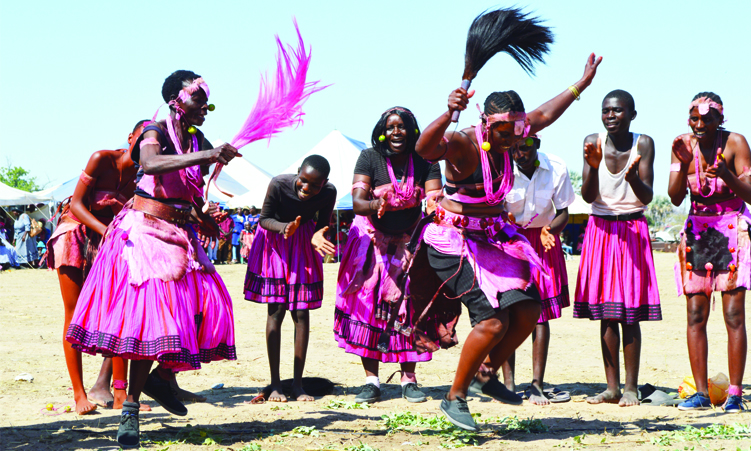Recently, all roads led to the Oshana region village of Onambango, were the Ondonga king lives, for the highly anticipated Omagongo Festival.
Joyous sounds and ululations could be heard at a distance coming from the palace, and the atmosphere was vibrant and welcoming.
Namibians from all corners eagerly awaited their leaders’ arrival.
Omagongo is not just a festival, but an event that offers insight into cultural diversity, different traditions, customs and lifestyles, fostering a cross-cultural understanding of Namibia as a nation.
The festival provided a platform for people from various backgrounds to celebrate their differences through understanding and respect.
The festival grounds were packed with Nambians in colourful outfits, representing their cultural identities.
The event did not only offer an opportunity to get a break from one’s daily routine, but also created memories and moments of joy that would last a lifetime.
It strengthened social bonds within communities and provided lots of opportunities for people to connect, share experiences and form long-lasting relationships.
I felt at home, safe and comfortable since the event provided amenities and ensured everyone’s well-being.
Security and protocol officers were visible all over, ample shaded seating was available, and everyone had a sip of Omagongo and a handful of traditional food.
Residents took it upon themselves to direct and welcome those from far with warm smiles and beautiful faces softly saying “uka huno sheeli”, which means “go this way, beloved”.
The festival did not only focus on the famous drink from the marula fruit, but saw different presenters and speakers showcasing other useful marula products.
During their demonstration, a group of Ndonga women mentioned that, apart from enjoying odjove and the king’s favourite drink, omagongo, one could also use the end product as firewood, and the ashes as hair food.
Those in the know showcased traditional practices, dances, rituals, arts and crafts essential to a community’s identity.
The festival provided the opportunity for individuals to express themselves, share their stories, and celebrate their heritage while being entertained with traditional song and dance.
In the end I saw a palace that housed close to 14 traditional leaders and their people, top government officials and the head of state.
This means the festival has instilled a sense of pride and belonging among participants, reinforcing unity, cultural identity and heritage.
Maximus Halwoodi
Stay informed with The Namibian – your source for credible journalism. Get in-depth reporting and opinions for
only N$85 a month. Invest in journalism, invest in democracy –
Subscribe Now!






